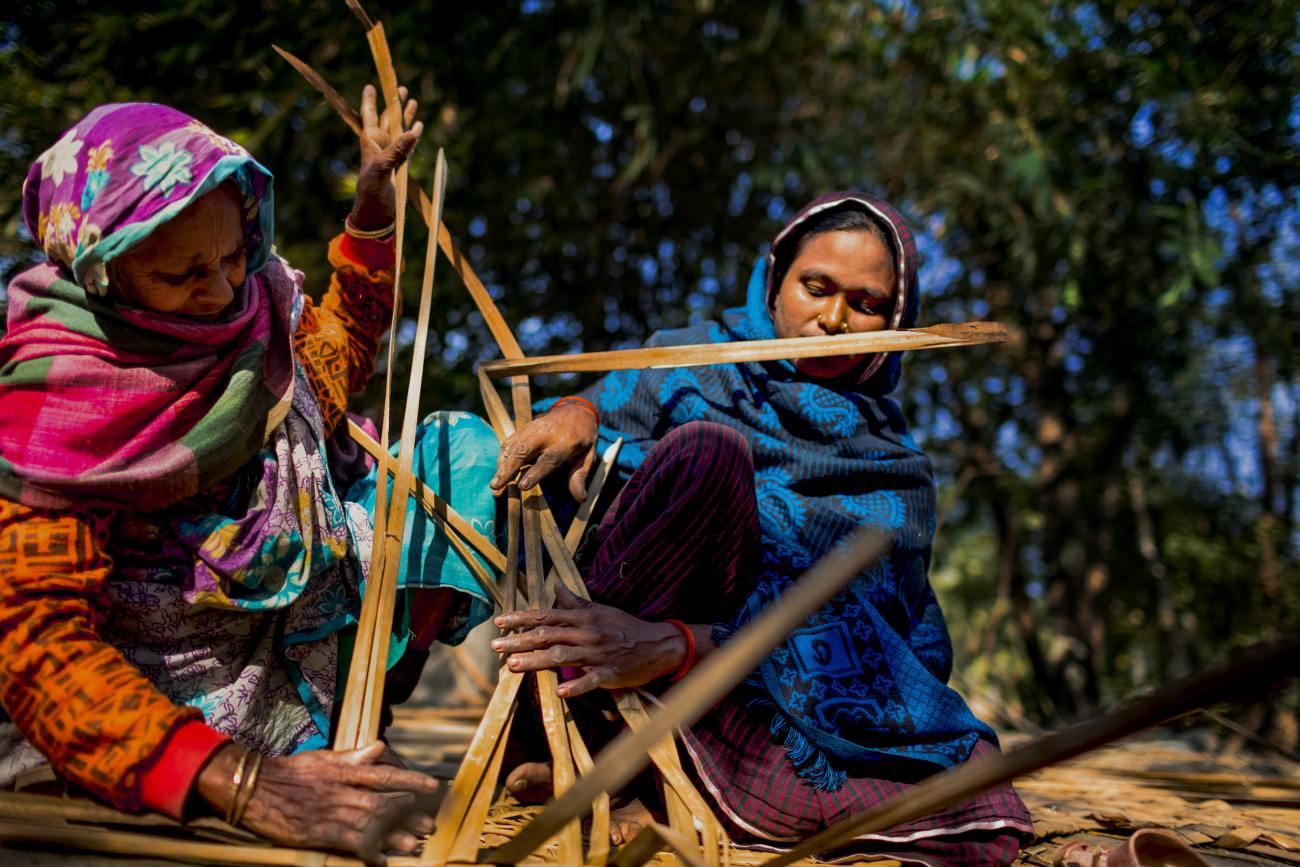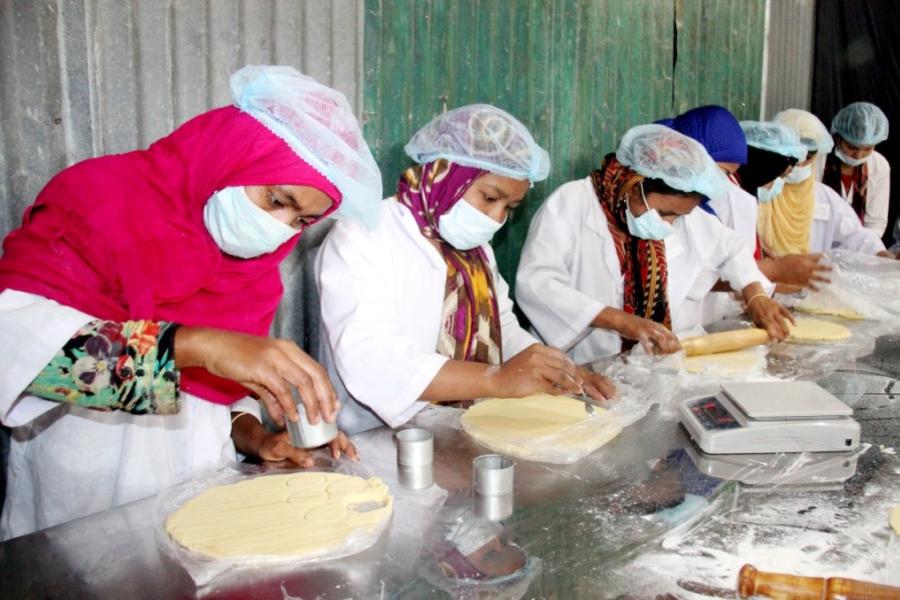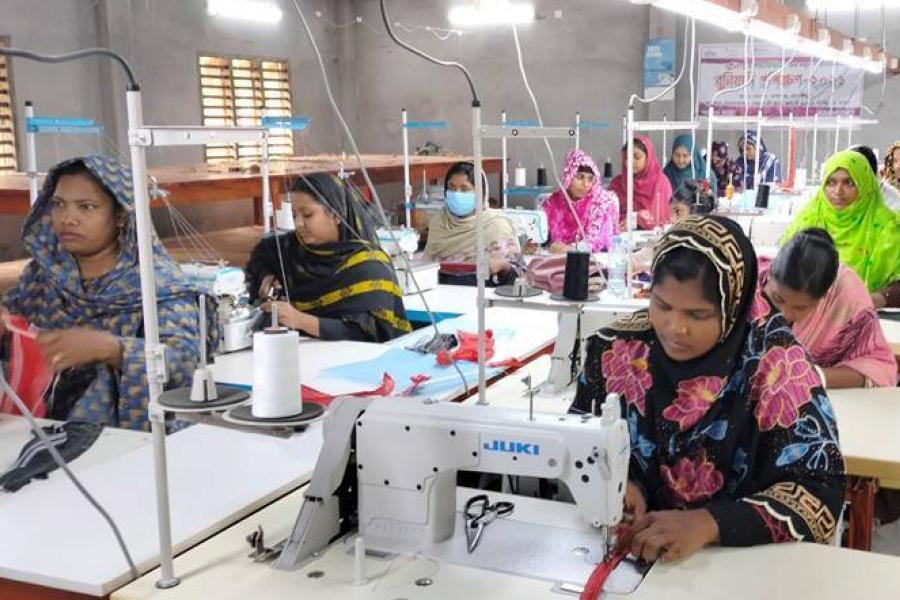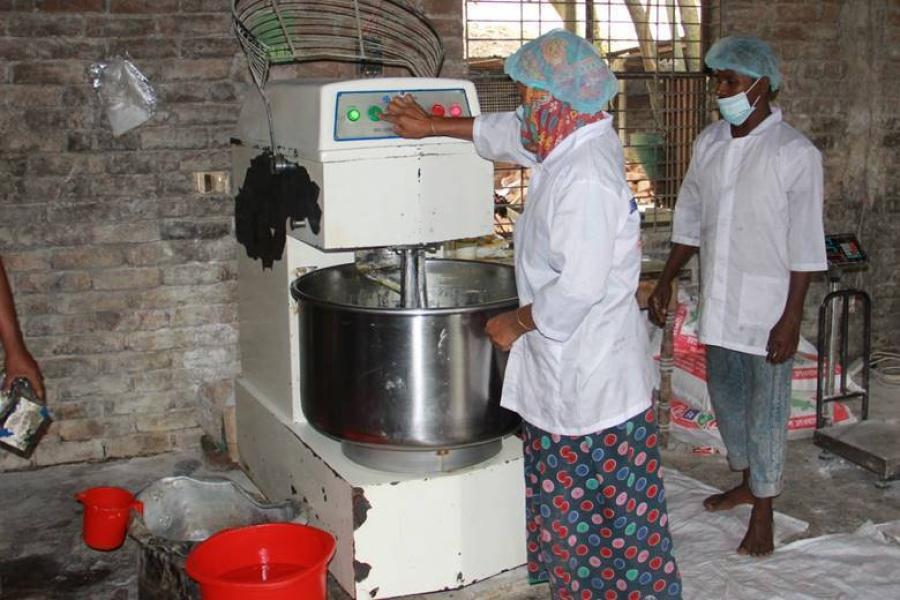Together as One UN for Women’s Economic Empowerment

The new project titled Women’s Empowerment for Inclusive Growth (WING) started in 2020 building on existing programme approach and partnerships.
Women’s economic empowerment is at the core of inclusive economic development of communities and countries. Given the many barriers that women and girls face in accessing economic opportunities, UNCDF, UNDP and UN Women came together with an unique approach towards women’s economic empowerment in Bangladesh.

The initiative originated from a global programme titled the “Inclusive Economic and Local Development Programme (IELD)”, funded by Sweden, Switzerland and Norway. The programme sought to facilitate the design, implementation, and sustainability of local investments by governments and the private sector to remove barriers to women’s economic empowerment. The programme also aimed at reversing some of the discriminatory social norms and practices that thwart women’s equitable access to economic opportunities.
In Bangladesh, the three agencies looked at two key constraints. First, women entrepreneurs, especially in the cottage, micro, small, and medium scale enterprises (CMSMEs) have very limited access to finance. During 2010-2018, only 3.5% of the total BDT9.4 million in credit disbursed to CMSME entrepreneurs went to women entrepreneurs. Second, women lack sustainable employment for resilience against shocks. Rural women, including those getting microfinance, training and running small businesses, tend to fall back into poverty when faced with shocks like natural hazards, job losses in the family or ill-health, the COVID pandemic or market volatility. Moreover, socio-cultural and other structural barriers also impede women’s economic empowerment.
To address these challenges, the IELD program engaged the local authorities, project developers and women’s groups to identify, fund and implement women’s economic empowerment projects; built capacities of local government for gender-responsive economic policy, planning and budgeting; and identified practical and innovative financial instruments to channel additional funding for SME financing and capacity building for private sector players including commercial banks and women entrepreneurs.
Individual women under economic stress do not have the leverage to negotiate with other economic actors even in well-functioning markets. So IELD enabled the power of collective knowledge and bargaining by linking women entrepreneurs to groups like (i) Women-led SMEs (ii) Women Development Forums (WDFs), a collective group of women’s elected representatives at local government bodies (iii) NGO-led social enterprises and (iv) Women led cooperatives. Since 2018, IELD has initiated eight investment projects related to women’s economic empowerment in Bangladesh with a total project size of $1.4 million. The total investment of $ 287,238 unlocked an additional $1.1 million from local partners, including governments, private companies, banks, and local government bodies. Against $1 of seed capital invested, US$4 was unlocked from domestic sources. Over 2535 women have benefitted directly from these projects as suppliers, traders and employees and 1014 jobs were created locally.

Encouraged by the success of IELD in catalyzing local investment, when the IELD project in Bangladesh ended, the three agencies – UNCDF, UNDP and UN Women decided to design the next phase of the programme appropriate to the specific context of Bangladesh and mobilize fund locally. The new project titled Women’s Empowerment for Inclusive Growth (WING) started in 2020 building on existing programme approach and partnerships. Funded by the Government of the Netherlands, the project sought to contribute to the Government’s aim of inclusive growth as articulated in its 8th five-year plan. As part of the WING project, some of the global tools of IELD are being implemented in Bangladesh and embedded into national institutions. For instance, the Women’s Economic Empowerment Index for evaluating the social impact and financial feasibility of investments has been institutionalized with Bangladesh Bank. Capacity development for gender responsive budgeting and planning with local government and promotion of UNWOMEN’s Empowerment Principles (WEPs) with private sector is being carried out, complemented by local level and national level advocacy for women’s economic empowerment. During COVID pandemic, Anondomela, an e-commerce platform was one of the innovations that helped women SMEs in linking with the market with WING support.

With a small seed funding, the three agencies UNCDF, UNDP and UN Women are taking a systems approach to address the issue of women’s economic empowerment by building a conducive policy and institutional set up, empowering partner organizations for women’s entrepreneurship to leverage the power of collectivity, and improving access to finance by generating local investments. The approach brings together the programme infrastructure and comparative expertise of the three agencies to generate outstanding returns on the initial seed funding. While the three agencies contribute to different aspects of the programme, by approaching local government officials and partner organizations together, the joint project is also reducing transactions cost for the Government and partners through time saved in meetings, better management of events, and more coherent and smooth information sharing. Joint communication and synchronized collaboration with national and local government actors has also led to better coordinated work and minimized the duplication of efforts.





